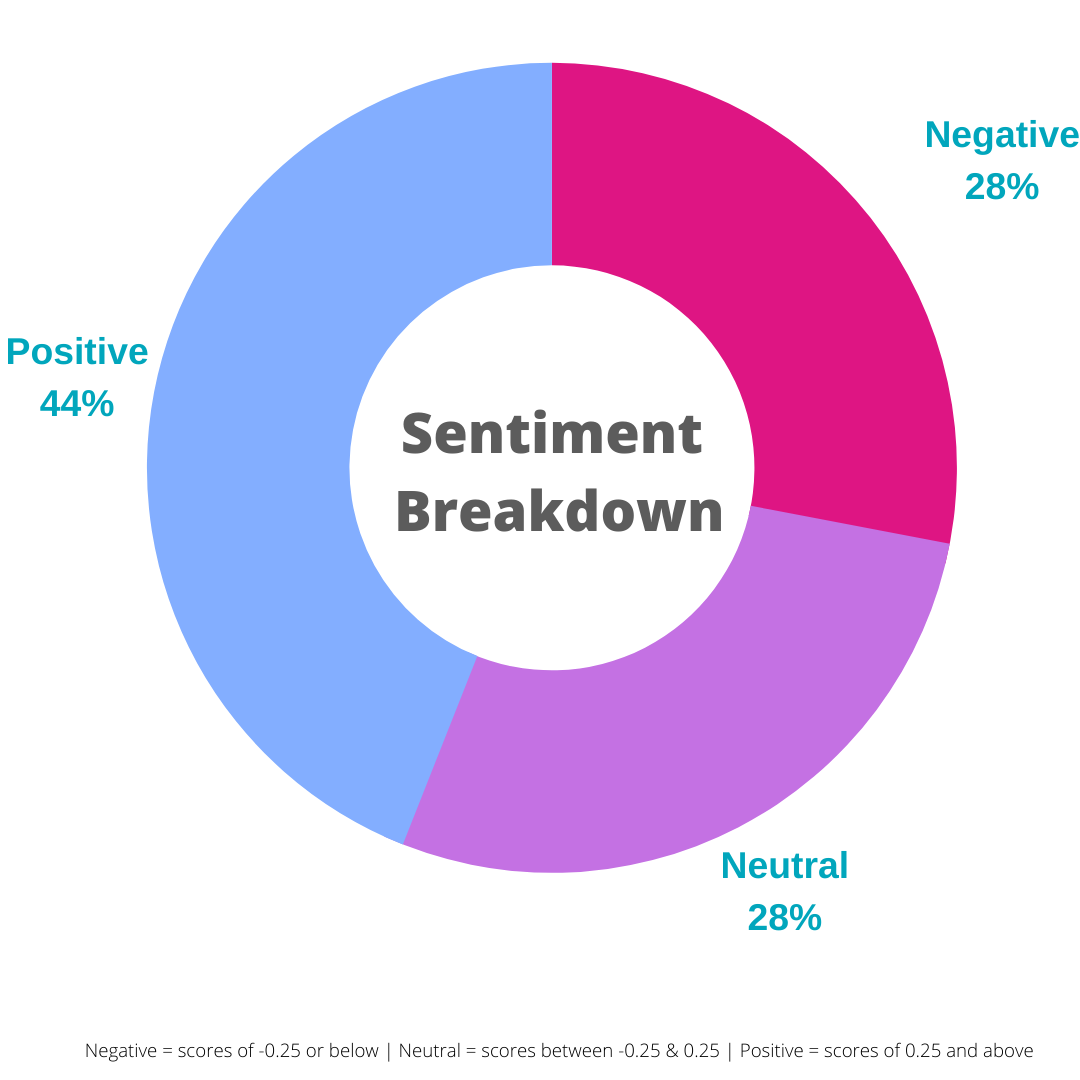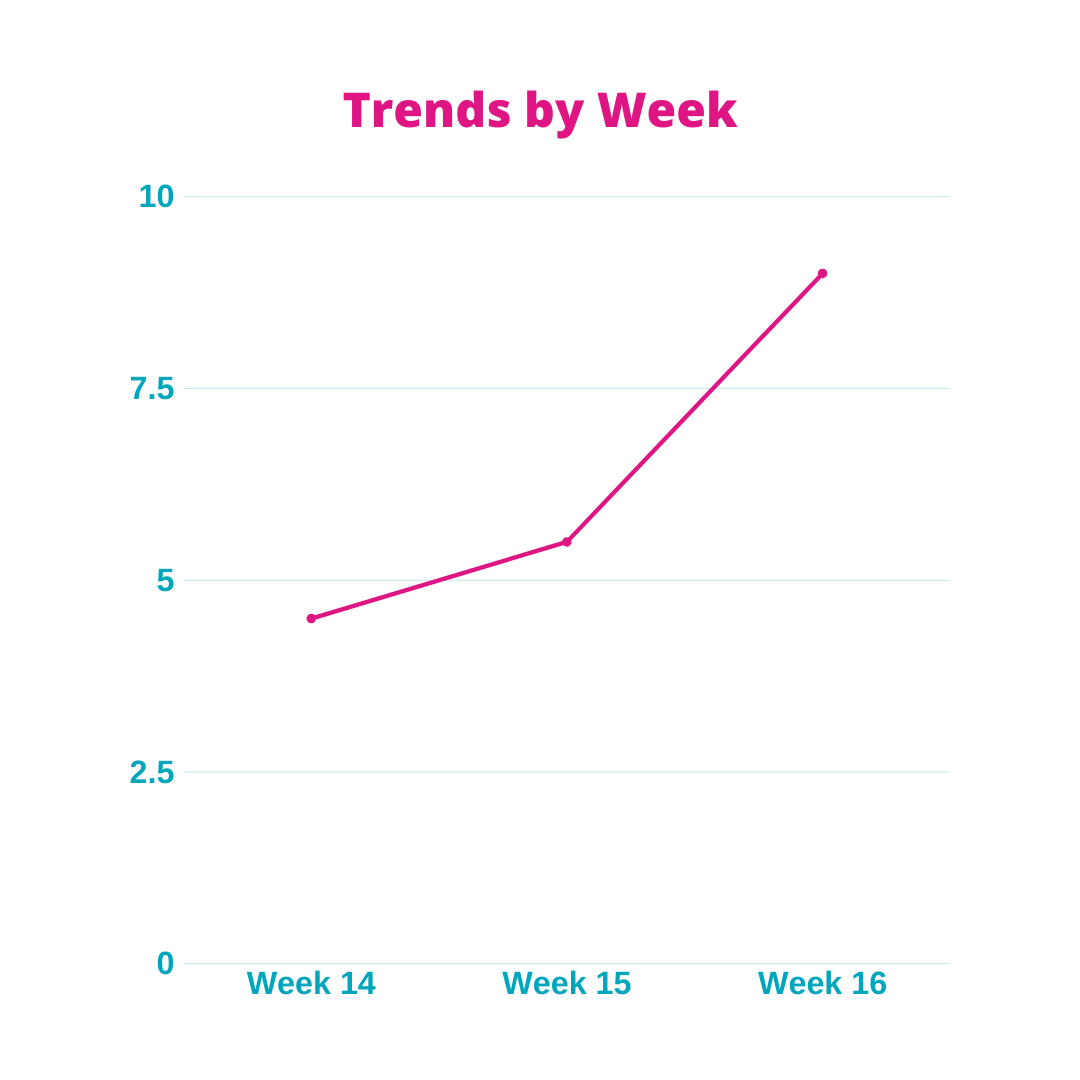How are you feeling today?
Good? Stressed? Happy? Anxious? Relaxed?
Last week, we teamed up with The Happiness Index to ask our staff, clients, candidates, and followers how they are feeling. We are all currently experiencing unprecedented and unexpected challenges, both in our personal and professional lives, and we believe that talking about how you are feeling can have a huge impact on your wellbeing.
It is important to remember right now that there really is no ‘right’ way to feel. We received an overwhelming response to our survey, and although there are many similarities between answers, there are also plenty of differences. Where some people have found themselves in a spiral of anxiety and uncertainty (in fact, the word ‘uncertainty’ was the most common word used by those who scored their mood as low), others have found the time to relax for the first time in a long time. In fact, the percentage of positive, negative, and neutral responses was split almost perfectly into thirds.

The Coronavirus outbreak has disrupted our world. We’re confined to our homes, watching a news cycle that rarely brings good news, and this can have a profound negative effect on your mental health. This, coupled with a slew of redundancies upon the government’s implementation of lockdown, has created a climate of fear and uncertainty in the business community.
The introduction of furlough – a concept new to the majority of workers – has also led to feelings of anxiety, worthlessness, and a loss of hope. Some workers who have been furloughed claim that this has had a negative impact on their confidence, feeling that they must not be integral to the business, or not be good enough at their jobs. At the same time, some workers who have been chosen to continue working can’t help but feel a sense of unfairness. Some are finding it hard to digest that their furloughed colleagues are getting paid not much less than them to do nothing, while they’re expected to work harder than ever. One very poignant comment struck us in particular, and should be taken to heart by employers: “The impact of furloughing on mental health is a lot more complex than you might think.” Feelings of anxiety and imposter syndrome are common on both sides of the furlough fence.
Whilst we all know that furlough is necessary to protect the futures of many businesses, this doesn’t make these feelings go away. Nor does it make them invalid. No matter how the current crisis is making you feel, it is completely okay to feel that way. And you are absolutely not alone. The extremely varied response to our survey proved this: no matter what you are feeling right now, someone else feels exactly the same way.
There is also an absurd amount of pressure online at the moment to be ‘using this time wisely’. ‘Motivational’ quotes have flooded social media platforms. With all this free time, the pressure seems to be on to learn new skills, tidy your house from top to bottom, start a new business, or take up a new hobby. Whilst some people may find that keeping busy helps them during this time, it will not help everyone. With so much uncertainty and worry around at the moment, being productive and staying busy may end up hurting you more than helping you.
Feelings of loneliness and isolation are also incredibly common, even in people who would not usually class themselves as very social. Many of us had not realised how much human interaction we relied on throughout our days – chatting to shop assistants and baristas, nattering with colleagues, coffee dates with friends – that have now disappeared from our day to day lives. Video calling and regular message exchanging is great for a short-term fix, but not always as real a connection as seeing someone face to face. In our survey, ‘isolated’ was the second most common word used by those who scored their mood as low.
There is no ‘correct’ way to feel when we are all trying to cope with an unprecedented situation, and there’s also no one solution, either. It is, however, important to remember to look after yourself. The term ‘self-care’ has become a sort-of ‘buzz word’ over the past year, but that does not mean it isn’t important to pencil in time to look after yourself… even in the midst of an unprecedented pandemic.
Self-care can mean something different to each person, and it’s important to think about what self-care means to you. Some people may find exercise is their way of looking after their mental health, and someone else might find that it’s becoming a duvet burrito for a day and binging on Netflix. The responses to the survey showed some great examples of how self-care can be different for each person: from baking and cleaning, to water fights with the kids. My way of looking after my own brain is to put some time aside for myself to do something I love; gardening, reading, or even just having a nap.
Another interesting piece of data we discovered from our survey was that as each day passed, people were recording higher happiness scores. Of course, this could just be a co-incidence, but it could also be a sign that we are slowly beginning to adjust to the strange circumstances that we find ourselves in…. our new normal.

How this pandemic will affect our day to day lives going forward is yet to be seen. Whilst some people claim that we can never go back to the way we were before, others believe that as soon as this is over we’ll immediately do just that. However, if we take just one thing from all of this, I hope that it has given us all the wake up call our society needs when it comes to looking after our mental health.




.png)
.jpg)






